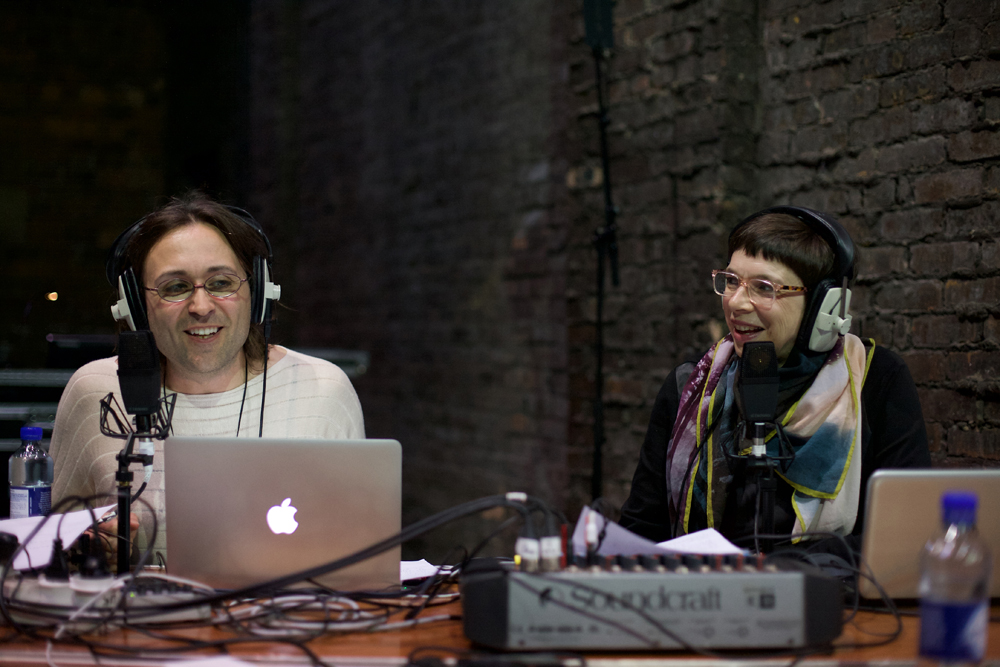
TLRS
Laurence Rassel Terre Thaemlitz
The weeks previous TLRS daily radio shows, after-hours conversations, radio booths and special guests reassembled as a live electroacoustic performance.
Arika have been creating events since 2001. The Archive is space to share the documentation of our work, over 600 events from the past 20 years. Browse the archive by event, artists and collections, explore using theme pairs, or use the index for a comprehensive overview.

The weeks previous TLRS daily radio shows, after-hours conversations, radio booths and special guests reassembled as a live electroacoustic performance.

A workshop inviting participants to enact a series of scores that explore witnessing, testimony, grief and mourning, facilitated by Mezna and Sadia, and accompanied by Sakina Ali.
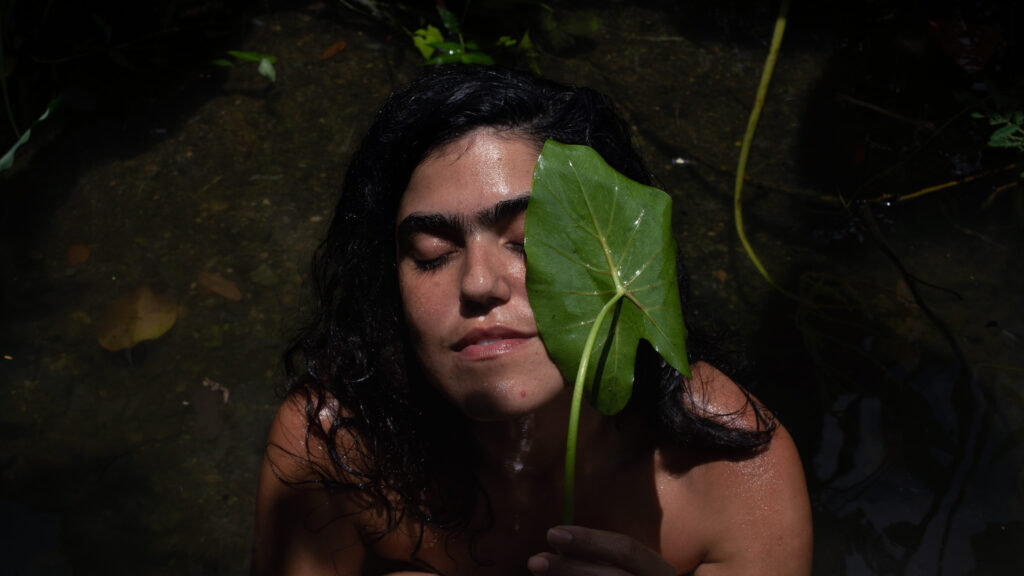
A film as a translation of Monique Wittig’s landmark feminist novel Les Guérillères, in which a plural protagonist of militant feminists inhabit a fantastical, enigmatic and hallucinatory miasmatic space-time of post Hurricane Maria Puerto Rico.

A specially commissioned performance for organ. “The course of the stars were to be put to sound.”
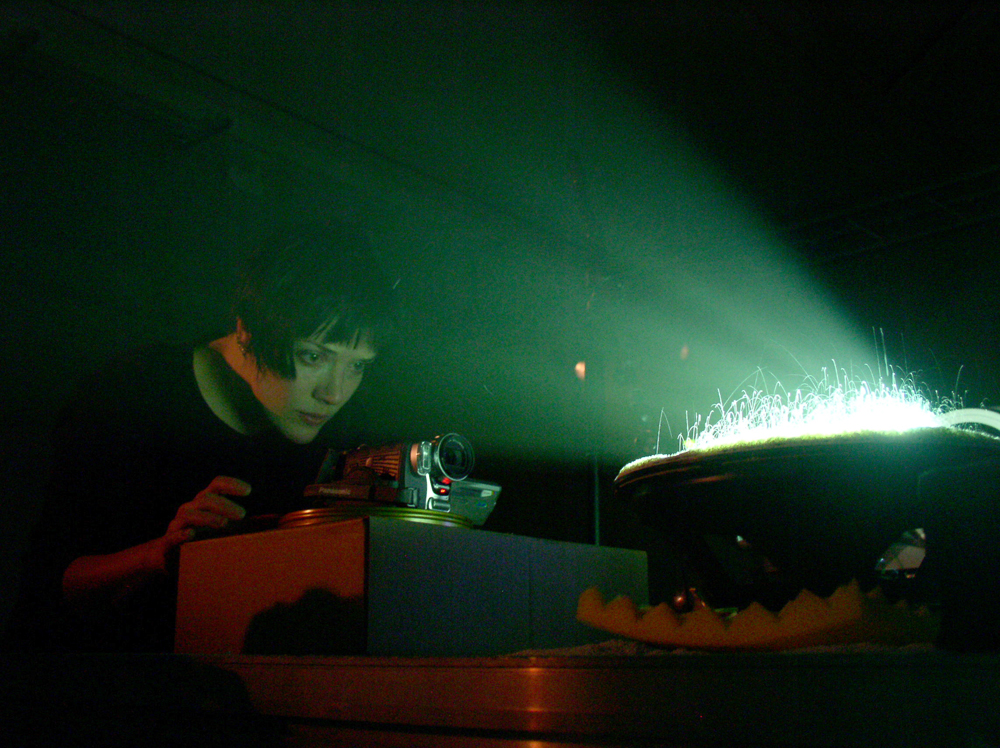
An original and beautifully simple performed installation forging a direct link between sound and image.

A kind of audience activating, structured film guessing game in the manipulation of time, sound and image. “At 11:15, weiners. At 21:05, pornography. At 23:30, a duet. Watch the Clock.”
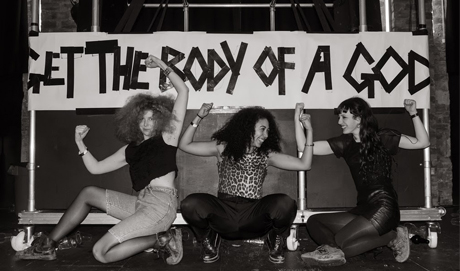
A movement-based workshop on Krump and the politics of how we teach, learn and listen with our bodies. Move with us!

The struggle for sex workers’ rights and how we can understand it in the continuum of care work and other forms of invisibilised and precarious work.

Noise music for the eyes. A 6 screen 16mm projection performance of intense audio and visual stimulus.
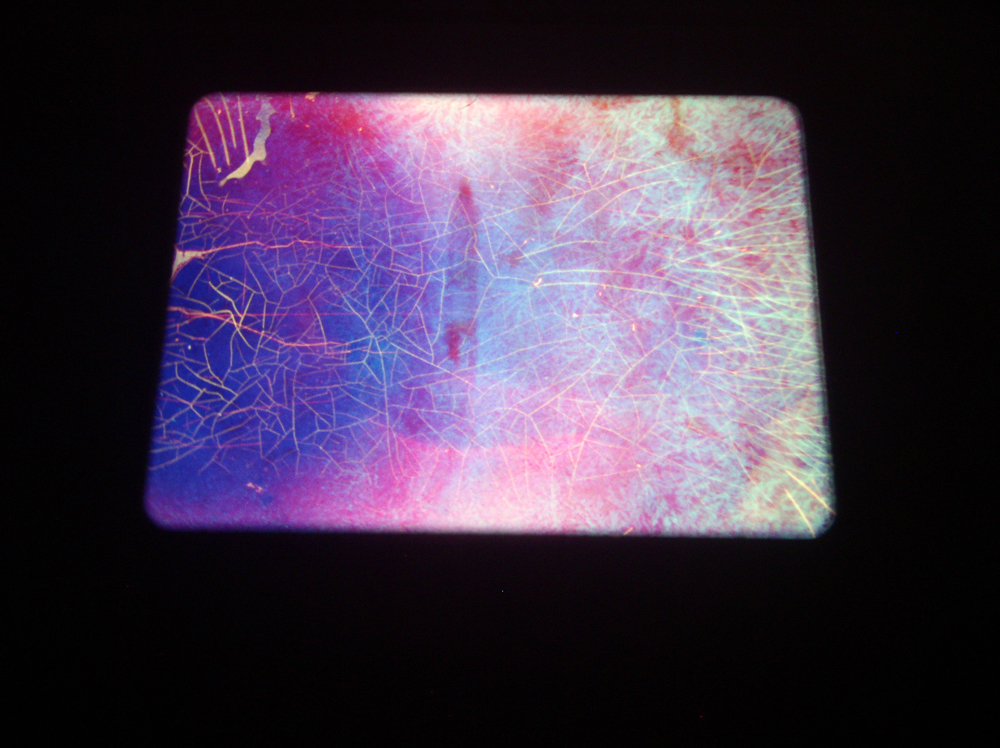
An immersive live performance for multiple 16mm film and bass clarinet, taking in the whole gallery, submerging the audience.

Noise music for the eyes: projectors turned into instruments, B&W film loops into a thrumming riot of colour, motion and sound.

Rather than asking the state for services, what kinds of change are made possible when we prioritise people supporting each other?